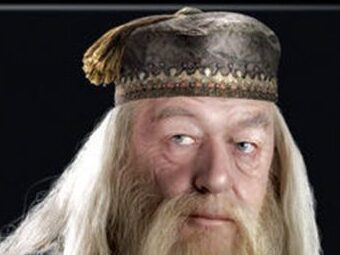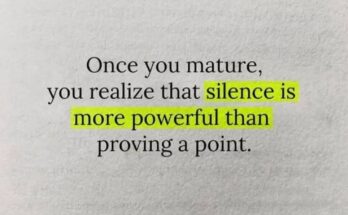Gandalf, one of the most beloved characters in The Lord of the Rings and The Hobbit, is more than just a wizard—he is a guide, a mentor, and a beacon of wisdom. Throughout J.R.R. Tolkien’s works, he offers invaluable lessons on courage, hope, destiny, and the importance of kindness. His words resonate beyond Middle-earth, offering wisdom applicable to our own lives.
This essay explores Gandalf’s greatest insights, breaking them down into themes of fate and free will, courage and fear, wisdom and foolishness, hope and despair, and the value of small deeds.

Fate and Free Will
One of Gandalf’s most famous lines comes when Frodo laments the burden of carrying the One Ring:
“I wish it need not have happened in my time,” said Frodo.
“So do I,” said Gandalf, “and so do all who live to see such times. But that is not for them to decide. All we have to decide is what to do with the time that is given us.”
This simple yet profound statement is a core theme of Tolkien’s work. Life presents us with circumstances beyond our control—wars, hardships, and burdens we never asked for. But Gandalf reminds us that we cannot choose our fate, only our response to it. Instead of wishing for different circumstances, we must find the courage to act within the time we are given.
He expands on this theme later when he speaks about the destruction of the Ring:
“Even the very wise cannot see all ends.”
In a world obsessed with certainty, Gandalf reminds us that no one, not even the wisest, can predict the future. Our choices matter, even when we don’t see their full effects. This is a call to act with integrity, even in uncertainty.

Courage and Fear
Gandalf frequently emphasizes the importance of courage over fear. He does not encourage reckless bravery but rather a steadfast heart in the face of overwhelming odds. In The Hobbit, he tells Bilbo:
“True courage is not about knowing when to take a life, but when to spare one.”
This is a defining moment for Bilbo, who later shows mercy to Gollum—an act that ultimately saves Middle-earth. Gandalf teaches that courage is not about physical strength or battle prowess; it is about making the right choices, even when they are difficult.
Before the Battle of Helm’s Deep, he reassures King Théoden:
“Courage will now be your best defense against the storm that is at hand.”
Fear is natural, but it must not rule us. The storm is coming—whether in battle, in life’s hardships, or in our own personal struggles—but we can meet it with courage.
Gandalf himself demonstrates this fearless resolve when facing the Balrog:
“You cannot pass! I am a servant of the Secret Fire, wielder of the flame of Anor. The dark fire will not avail you, flame of Udûn! Go back to the Shadow!”
This moment is one of Gandalf’s greatest sacrifices. He stands between his companions and certain doom, showing that courage is not just about fighting—it is about protecting others.
Wisdom and Foolishness
Gandalf’s wisdom often contrasts with the folly of others. One of his most direct rebukes comes when he warns Saruman about the dangers of seeking power:
“He who breaks a thing to find out what it is has left the path of wisdom.”
This warning applies not just to Saruman but to anyone who seeks knowledge or power without understanding the consequences. True wisdom is not about controlling everything—it is about understanding when to let go.
He also warns against arrogance:
“Do not take me for some conjurer of cheap tricks!”
This line, spoken to Bilbo, reveals that Gandalf does not use his power lightly. He values wisdom and guidance over force. Unlike Saruman, who seeks dominion, Gandalf uses his knowledge to serve and protect.
Another lesson on wisdom comes when he speaks to Pippin about making judgments:
“Many that live deserve death. And some that die deserve life. Can you give it to them? Then do not be too eager to deal out death in judgment.”
This teaches the importance of mercy. Even in a world full of war and danger, we must not be quick to judge others. This lesson is exemplified by Frodo’s compassion for Gollum—without it, the quest would have failed.
Hope and Despair
One of Gandalf’s most important messages is that hope must be preserved, even in the darkest times. Speaking to Frodo, he says:
“Despair is only for those who see the end beyond all doubt. We do not.”
This is a powerful rejection of despair. No one can see the future with certainty, so we must never give up hope. This theme is echoed again when he reassures Pippin before battle:
“End? No, the journey doesn’t end here. Death is just another path, one that we all must take.”
Rather than fearing death, Gandalf presents it as a continuation of the journey. This perspective gives strength in times of sorrow, reminding us that life, in some form, goes on.
When Gondor is under siege and all seems lost, Gandalf states:
“There is always hope.”
This simple phrase carries profound weight. No matter how dire the situation, hope remains.
The Value of Small Deeds
One of Gandalf’s greatest lessons is that the smallest actions can change the world. He tells Frodo:
“I have found it is the small everyday deeds of ordinary folk that keep the darkness at bay—small acts of kindness and love.”
This idea is central to Tolkien’s work. It is not kings or warriors who defeat Sauron, but a simple hobbit who chooses kindness and perseverance. Even the smallest person—Frodo, Bilbo, Sam—can shape the future.
Gandalf also warns against underestimating others:
“There is more to this hobbit than meets the eye.”
This is a reminder that strength is not always obvious. Sometimes, those who seem insignificant hold the greatest potential.
His words to Bilbo at the start of The Hobbit reinforce this idea:
“Home is now behind you, the world is ahead!”
This line captures the essence of adventure and growth. We must step beyond our comfort zones to discover our true selves.
Conclusion: A Legacy of Wisdom
Gandalf’s wisdom transcends Middle-earth, offering timeless lessons on courage, fate, hope, and kindness. His words remind us that:
- We cannot control what happens, but we can choose how we respond.
- Courage is not about being fearless but about standing firm in the face of fear.
- True wisdom lies not in power but in understanding and humility.
- Hope must never be abandoned, no matter how dark the times.
- The smallest acts of kindness can change the world.
In the end, Gandalf’s teachings are not just for Frodo, Bilbo, or Aragorn—they are for all of us. His words remain a guiding light, reminding us that even in the face of overwhelming darkness, there is always hope.


